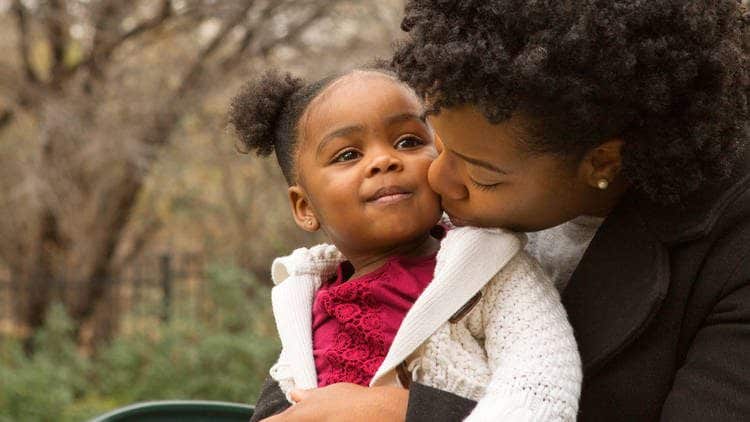Child Custody Lawyers in Williamsburg, VA
Fighting for Your Parental Rights — Because Your Child’s Future Matters | Trusted Child Custody & Support Lawyers
Few things in life feel more overwhelming than a child custody battle. The uncertainty, the emotional strain, and the fear of losing time with your child can be isolating and stressful. Whether you’re facing custody issues during a divorce or need to modify an existing arrangement, you shouldn’t have to navigate this alone. At Waltrip & Campbell, PC, we fight for parents who want what’s best for their children—because we know there’s nothing more important.

What’s at Stake in a Child Custody Case?
- Who has legal and physical custody of your child
- How visitation and parenting time are structured
- Parental rights and decision-making power
- Your ability to maintain a strong bond with your child
How We Advocate for You & Your Child:
We use a proven 3-step legal analysis to Child Custody & Support Cases
1.Tailored Legal Strategy – Every family is different. We work closely with you to develop a case strategy that aligns with your goals and prioritizes your child’s best interests.
2.Negotiation & Mediation – If an agreement can be reached outside of court, we help draft legally sound custody agreements that reflect your family’s needs.
3.Collaboration with Experts – From therapists to school officials to Guardians ad Litem, we work with professionals who can provide valuable insight into your child’s well-being.
Your child’s future is too important to leave to chance. Contact Waltrip & Campbell, PC today for a consultation and let us fight for the best outcome for you and your child.
Cases We Handle:
- Petitions for Child Custody & Visitation
- Motions to Amend Child Custody & Visitation
- Child Support Petitions & Hearings
- Child Support Garnishments and Show Causes
- Protective Orders & Show Causes
- Adoptions

Virginia Child Custody and Child Support Law FAQ
How is child custody determined in Virginia?
Virginia courts base child custody decisions on the best interests of the child, considering factors such as each parent’s ability to care for the child, the child’s relationship with each parent, and any history of abuse or neglect.
What is the difference between legal custody and physical custody?
Legal custody refers to the right to make major decisions about the child’s upbringing, including education, healthcare, and religion. Physical custody refers to where the child primarily resides.
Can a child choose which parent to live with in Virginia?
While there is no specific age at which a child can decide, courts may consider the preferences of older and more mature children as one of several factors in custody decisions.
How is child custody determined in a Virginia divorce?
Courts prioritize the best interests of the child, considering factors such as each parent’s relationship with the child, stability, and ability to provide care. Virginia allows for joint or sole custody, and custody agreements can be modified if circumstances change.
Do grandparents have visitation rights in Virginia?
In certain circumstances, grandparents can petition for visitation if it is in the child’s best interest and does not interfere with the parent-child relationship.
Are child custody cases public record?
No. Child custody cases are not public record. Because child custody cases involve juveniles, the information about the case to include custody orders, Guardian ad litem reports, pleadings and all motions are sealed from public access. In Virginia, in order to access these documents, a party must appear before the Juvenile Court Clerk, provide identification, and can receive copies of prior orders or pleadings. An attorney who represents a party or juvenile, may access these documents after providing notice to the Clerk of said representation.
Records of juvenile cases, both delinquency (where a child is charged with an offense) and civil (custody, visitation, support, and child dependency), are confidential and cannot be inspected by the general public. Exceptions include cases where a child 14 years of age or older at the time of the offense is found delinquent for an act that would be a felony if committed by an adult, and cases where an adult is charged with a crime; records of these cases are open to inspection by the general public. However, a judge may seal (make confidential) a case or record within a case.
Are child custody hearings public?
It depends. JDR courts differ from other courts in their duty to protect the confidentiality and privacy of children and their families who have legal matters before the court. The general public is excluded from all JDR court hearings, unless the judge authorizes a person to be present. Exceptions include cases where the child is 14 years of age or older at the time of the offense and is alleged to have committed an offense that would be a felony if committed by an adult, and cases involving adults charged with a crime.
The judge may close any proceeding to the public for good cause shown.
From a practical perspective, while many people may appear for a custody matter, a Judge or Bailiff will clear the court room of all persons not directly involved in the matter prior to the commencement of the case, or upon the request of either party.
Can child custody be in a pre-nuptial agreement?
Yes; however, it may not be enforceable.
A prenuptial agreement is a binding agreement entered into by two persons upon the anticipation of marriage. Said agreement only becomes binding upon the marriage of the parties and if no marriage occurs it is otherwise unenforceable.
As it relates to child custody, while two parties can enter into an agreement about the care and custody of their children, if the children are yet unborn, or not yet conceived, it is unlikely that a court would enforce the terms of the prenuptial agreement. This is based in the concept, under Virginia law, that the “lodestar” of all custody matters is the best interest of the children. If a court determines that the terms of the prenuptial agreement are not in the “best interest of the child” they have the authority to enter child custody orders contrary to the terms of the agreement.
For any custody agreement, it’s important to remember that said agreements, and subsequent court orders are amendable upon a showing of a material change in circumstances that impacts the best interest of the child.
So while parties may enter into agreements concerning the care and custody of a child, and while courts will generally favor the decisions of parents in regards to these agreements, if a court determines that an agreement is not in the best interest of a child, it has the authority to modify the agreement with a binding court order.
Can child custody be changed after divorce?
Yes. Any child custody agreement, or order, can be modified by a court of competent jurisdiction if a material change in circumstances has occurred since the divorce was granted.
Common examples of a material change in circumstances include: a parent moves or relocates; one parent remarries; a parent’s job change allows for, or requires, a different parenting time schedule; the changing developmental needs of the child; the preference of the child given the child is of sufficient age, intelligence and maturity.
Can child custody be settled out of Court?
Yes! Parents can enter into a written agreement concerning legal custody, physical custody and a parenting time schedule. This agreement can be submitted to the Court, without a hearing, and entered as an enforceable court order.
When parents reach an agreement outside of court it’s a great step in developing a harmonious co-parenting relationship. It also gives each parent clear direction and expectations of how parenting time will be structured. Once entered as a court order it also provides assurance that the terms can be enforced by the Court.
Can child custody orders be appealed?
In Virginia, if the child custody order was entered by a Juvenile and Domestic Relations District Court there is an automatic right of appeal to the Circuit Court. This appeal grants the parties a trial de novo. In a trial de novo, the court will conduct a completely new trial and consider all evidence as if the prior court order had not been entered.
Child Custody & Mental Illness
One of the principal factors a court considers in making determinations of child custody is the physical and mental condition of each parent. If a parent is suffering from a mental illness the Court will take this into consideration. However, its important to consider whether there is objective evidence of mental illness, such as a prior or recent diagnosis, or whether the concern is merely suggested.
Courts will also consider whether a parent is seeking treatment for their mental illness in the form of medication management or counseling and therapy.
The same applies for parents suffering from drug, alcohol or other substance abuse issues.
The primary concern for the court is not whether someone suffers from a mental illness but whether that illness impacts their ability to parent the child, or whether that mental illness poses any threat
Success Stories
I can’t even describe how impressed and how much my expectations were exceeded with Mr. Waltrip. I had a fairly difficult custody case that he handled. From beginning to the end he was beyond professional and in court is really where he shined and that by far is the most important part of having an attorney.
★★★★★
– Melissa T.
Due to problems I had regarding seeing my child. I want sought lawyer assistance based upon quality reviews. I came across Mr. Waltrip and presented all of my information at our first which didn’t take long to occur. I liked his plan and most of all his guidance on what I should do to not cause harm and to better my chances if trial was needed
★★★★★
– Dwann T.







